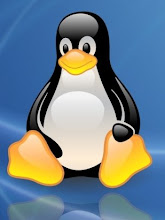
Microsoft has reached an enormous success with its Windows product during the last decade and practically monopolized the market for home computer operating systems. But, does it mean Windows is still the best OS around, especially for power users?
No, it’s not. At least not always. And on this page you are going to see why.
Summary
If we draw a comparison between the two operating systems considering licensing, selling, and upgrading models, and if we add the supreme configurability (resulting from the system’s philosophy), and a low pricing then it will appear the GNU/Linux is decidedly more user friendly in terms of software then any other system existing on the market at present (perhaps apart from niche systems like GNU/Hurd and Haiku). Microsoft Windows systems are still dug in on the other pole with their restricted licensing allowing users to — at the most — conditionally run the systems (not even in every case) and their applications.
By friendliness we mean something more general that the ease-of-use and availability of applications! It is about not constraining the users but granting them full freedom to exert their rights to use software in their own way. It is about a freedom of choice — the possibility to use any window manager, any file system, and any package system the user wants to choose, about the possibility to work in a console or GUI environment, locally or remotely. It’s all about the security schema, well designed and overt, instead of “security by obscurity” model which has been compromised over and over. Do the users need such freedom? Certainly 90% PC users will do well without it. For the remaining 10%, including me, the GNU/Linux systems have appeared to be the only solution.
Read 10 reasons to choose Linux
- Security — why are the default security settings of Windows XP so bad?
- Desktop usability — what is wrong with Windows’ usability and how it is corrected in GNU/Linux desktops?
- Installing software — ok, you thought it can’t be easier than double-clicking the setup.exe file? Think again!
- Upgrading — ever thought that upgrading your system and all its appliactions could be as executing one single command? No? Well, GNU/Linux is exactly this way.
- System crashes — every desktop crashes, but how to get over it?
- Performance — is Linux really that much faster than Windows? Well… it is.
- The power of console — learn how to improve your productivity by using the terminal
- Remote access in GNU/Linux — how to connect remotely to your Linux box
- Philosophy and licencing of Linux — how does it differ from the proprietary software?
- Cost and TCO of Linux — what is cheaper — Linux or Windows?






